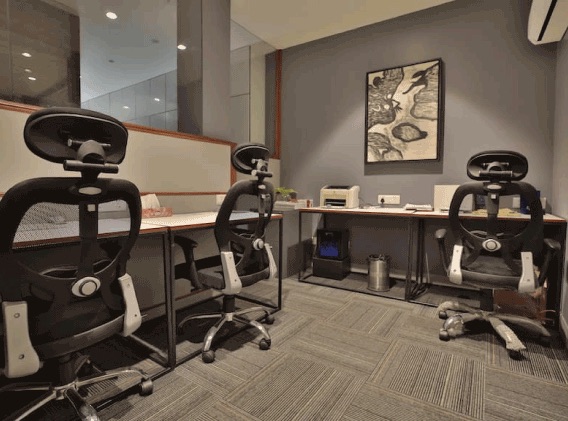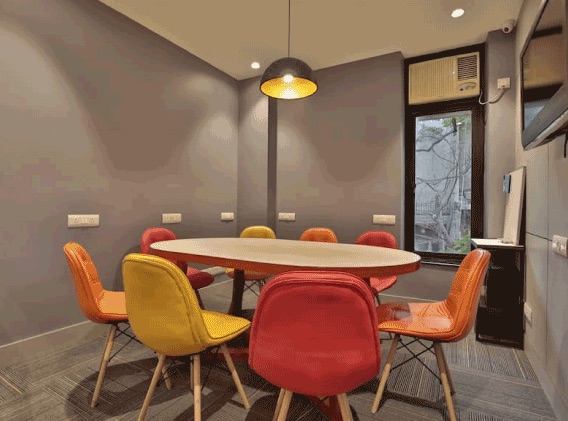ABL Workspaces Raises Rs 15 Crore Funding From Canada-based Ethik Inc
1.webp)
-
ABL Workspaces Raises Rs 15 Crore Funding From Canada-based Ethik Inc
 30 Nov. 2021
ABL Workspaces
30 Nov. 2021
ABL Workspaces 07:00 AM
07:00 AM
Welcome to ABL Workspaces Raises Rs 15 Crore Funding From Canada-based Ethik Inc
ABL Workspaces, a Co-working operator, has raised Rs 15 crore from Canada-based Ethik Inc. as part of its Series A funding round.
The co-working startup plans to use the freshly raised funds to expand its seating capacity and centres in the Delhi-National Capital Region. The startup aims to expand its seating capacity to 15,000 by 2023 from 2,470 at present. It also intends to develop the team and its technology.
ABL Workspaces | Putting Ideas To Work
Founded in December 2017, ABL Workspaces has nine centres in Delhi NCR that caters to several leading brands, including Kotak Mahindra Bank, Netambit, Ariston Thermo (Racold), Clovia and Simba beer.
Speaking on the development, Akshita Gupta, Co-founder and CEO of ABL Workspaces,
“I believe the funding will help us to transform the perspective — the way occupiers look at office space in the future. We look forward to expanding our seating capacities to accommodate more businesses. The fresh capital will enable us to strengthen our team and technology more efficiently.”
Recent News

Welcome to Corporate shift to hybrid work shores up demand for co-working spaces
ABL Workspace that has so far been primarily operating out of Delhi-NCR with 2,500 seats is now targeting adding 15,000 seats across the country by March 2023. Mumbai, Pune, Bengaluru and Hyderabad are some of the major markets it is eyeing. Besides, the firm is keen on foraying into tier two and three cities given that tech companies have started booking space in smaller cities to save costs. “Coworking will be a good solution for such budgeted problems,” its founder and CEO Akshita Gupta tells Fortune India. It just closed a deal with Kotak Mahindra Bank too.

Welcome to What are the Union Budget 2022 expectations of corporate leaders?
Akshita Gupta, CEO, ABL Workspace, “The coworking segment has grown exponentially over the years and has had a major impact on the performance and utilisation of commercial real estate. I feel now is the time when we should keep into consideration this very aspect and ensure progressive policy reforms to boost the market’s growth. I would want to put forth a humble request to the Finance Ministry to recognizing the coworking space under schemes such as REIT, provide tax benefits and consider reducing the TDS deduction rates to upscale the segment. It would be great if govt can consider bringing coworking spaces into the 2% TDS bracket from the present 10% slab. This will not only boost the market’s growth but will further allow the coworking spaces seamlessly manage the cash flows since it is a service-based segment. I strongly feel that these reforms if introduced will play a major role in driving the growth of the real estate sector in the times to come. Talking from start-ups POV, it is usually entrepreneurs from the early and mid-start-ups that prefer coworking spaces. However, costings like registration charges and stamp duty at registrar offices are borne by the coworking offices and if government can reduce these charges, then it would directly benefit the end-users as they will have to spend less for the services. I am also of the view that if the requisite financial assistance can be provided to the start-ups, then it will indirectly help in driving the growth of the coworking spaces as well.”

Welcome to 2022: The beginning of a golden era of co-working spaces?
According to a Cushman & Wakefield report, coworking operators expanded their portfolio aggressively last year and took on lease 21 per cent more office area - 4.91 million square feet in 2021 from 4.05 million square feet in the previous year - across the top eight cities of Bengaluru, Hyderabad, Pune, Mumbai, Delhi-NCR, Chennai, Kolkata, Ahmedabad to meet the rising demand for flexible workspaces from corporates amid the pandemic.
According to another report by JLL, India's coworking space market is likely to cross 50 million square feet by 2023.
Industry experts say that the sector is only poised to grow stronger.

Welcome to Why Co-working Sector Will Emerge Stronger In 2022
The co-working space has undergone various changes since its inception in the late 2000s. With the death of cubicles and open floorplans gaining popularity to working spaces providing employees with foosball, table tennis and pool tables. But this was before COVID-19, the pandemic that has redefined the concept of working especially co-working spaces in past two years. It has not only forced the employers to change their work policies and strategies but has also been giving preference to hybrid model to perfectly fit into the new normal world.


